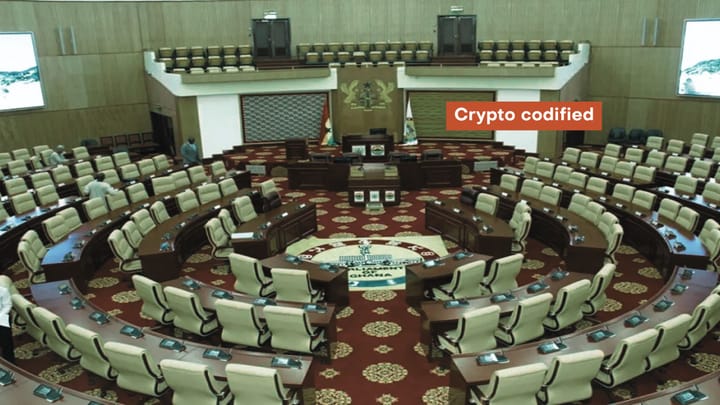South African court rules that crypto is not subject to exchange control regulations
According to Judge M. P Motha, crypto is not money, and the scope of current regulations do not define crypto as capital.

A Gauteng High Court in Pretoria, South Africa, has ruled that cryptocurrencies are not currencies, nor can they be regarded as capital, making them immune to the country’s exchange control regulations.
The court added that only legislative reform can amend or extend the scope of definitions in an act of law and not a court ruling.
Stay up-to-date with the latest blockchain developments in Africa
Dive in
- Judge M. P. Motha passed this judgement on May 15 in a case involving South African bank, Standard Bank, the South African Reserve Bank (SARB) and a now insolvent company, Leo Cash and Carry (LCC).
- Leo Cash and Carry opened an account with Standard Bank in 2020, but by the following year, the bank began liquidation proceedings against the company after discovering that clients linked to LCC had defrauded it.
- In an attempt to recover its losses, Standard Bank placed a lien on LCC’s account, which held R16.4 million ($1 million), unaware that SARB’s Financial Surveillance Department had already launched an investigation into companies like LCC.
- These companies had purchased cryptocurrencies at local exchanges and then transferred these assets to foreign exchanges, a move seen by SARB as contravening exchange control regulations.
- These regulations prohibit the unauthorized export of capital, currency, gold and securities in a bid to protect the South African rand’s value.
- Following its investigations, SARB declared the R16.4 million balance in LCC’s Standard Bank account, alongside those in a NedBank account, forfeited to the government.
The legal details
- Standard Bank challenged SARB’s forfeiture in court, arguing that the definition of ‘capital’ in the exchange control rules does not include cryptocurrencies.
- In addition, its counsel claimed that if the scope of the definition of ‘capital’ will be extended to include cryptocurrencies, the process must be done by legislative amendments to the law.
- The bank also argued that since crypto is neither classified as capital nor legal tender in the country, a transfer of assets from wallet to wallet cannot be considered as payment under current regulations.
- The court found that frequent transactions occurred between LCC’s rand and bitcoin wallets and the local exchange VALR, after which LCC converted the rands into bitcoin and deposited 75% of the total (4.405 BTC) with the global exchange Huobi.
- As such, a systematic movement of funds offshore such as this could potentially violate exchange control rules.
- The court ruled that crypto is not considered money in South Africa, dismissing the central bank’s argument that digital assets should be treated as foreign currency. As a result, it overturned SARB’s forfeiture order, stating that crypto does not meet the definition of capital under the country’s exchange control regulations.
Key quote
- The judge ruled:
“Certainly, gold, securities, etc. and the import of South African banknotes do not include cryptocurrency. Cryptocurrency is not money. The construction that cryptocurrency is money, by looking at the definition of money which includes foreign currency, is strained and impractical.”
- On the right channel to amend the regulations, Judge Motha said:
“To me, on any construction, much less on a restrictive interpretation, cryptocurrency falls outside the ambit of capital under Reg 10(1)(c). I agree with the counsel for the applicant that a regulatory framework addressing cryptocurrency is long overdue ... cryptocurrencies need some legislative attention.”
Why this matters
- Crypto regulations in South Africa have intensified since 2022, when the Financial Intelligence Center added crypto firms to a list of accountable institutions.
- In 2023, the Financial Sector Conduct Authority (FSCA) asked crypto firms to obtain operational licenses.
- At the beginning of the year, the FSCA said it had licensed 248 firms.
- While regulations are live, clarity on the true extent of the crypto legal regime is a progressive event with multiple pieces of legislation yet to fall into place.
- In March, Luno’s global head of legal and corporate strategy Paul Harker asked the country’s National Treasury to declare bitcoin as an onshore asset.
- This was due to current regulatory restrictions on how much money institutional investors can put into assets classified as offshore, or, in crypto’s case, not classified at all.



